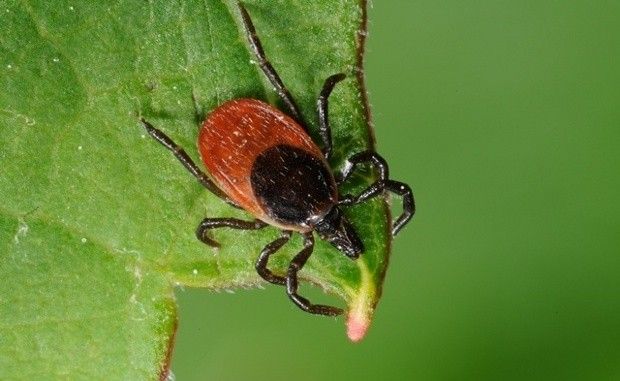A report published in today's issue of the journal Medical and Veterinary Entomology cautions that, as revealed by a recent investigation carried out by scientists at the London School of Hygiene & Tropical Medicine, there are ticks known to carry Lyme disease in London parks.
The research focused on a total of four parks in South London: Richmond, Bushy, Wimbledon Common and Hampton Court. Ixodes ricinus ticks, whose bite can cause Lyme disease, were found both in Richmond and in Bushy parks.
However, only ticks collected from Richmond Park were found to actually be infected with Borrelia burgdorferi, the bacterium that is responsible for Lyme disease and that can be transmitted to humans via tick bites, the research team explain in a report detailing their work.
“A total of 1,109 ticks (532 larvae, 568 nymphs, nine adults) were collected at Richmond Park, and nine ticks (nymphs) were collected at Bushy Park,” they write.
Furthermore, “No infected ticks were found in Bushy Park; however, 6 nymphs from Richmond Park carried the bacteria, with 2.14% of nymphs in this park likely to be infected at a given time.”
Despite their findings, the researchers reassure that nature enthusiasts have nothing to worry about. Admittedly, there is a risk of infection, but it's a very low one.
Then again, to be on the safe side, they say people who visit these parks should check themselves and their pets for any unwanted additions to their party. Wearing an insect repellent and sticking to established paths also minimizes the risk to get bitten by a tick.
If untreated, Lyme disease can cause serious health trouble
As noted, Lyme disease is an infectious disease caused by a bacterium dubbed Borrelia burgdorferi. In turn, this bacterium is spread via tick bites. Medical experts say that, usually, an infected tick must be attached to the body about 36 to 48 hours for the bacterium to spread.
The first sign of infection is an expanding area of redness where the tick bit. Then, as the infection progresses, people experience more serious symptoms such as fever and headaches. Many complain about feeling tired all the time for no apparent reason.
If left untreated, Lyme disease can eventually trigger joint pains, neck stiffness and heart palpitations. In some cases, patients find that they can no longer move either one or both sides of their face. Memory problems are also a symptom of Lyme disease, albeit a rather rare one.
Lyme disease is usually treated with antibiotics. Exactly which antibiotics and in what dose depends on the symptoms displayed by each individual and when it was exactly that the infection occurred. Some only need to take drugs for about a week, others for an entire month.

 14 DAY TRIAL //
14 DAY TRIAL // 

